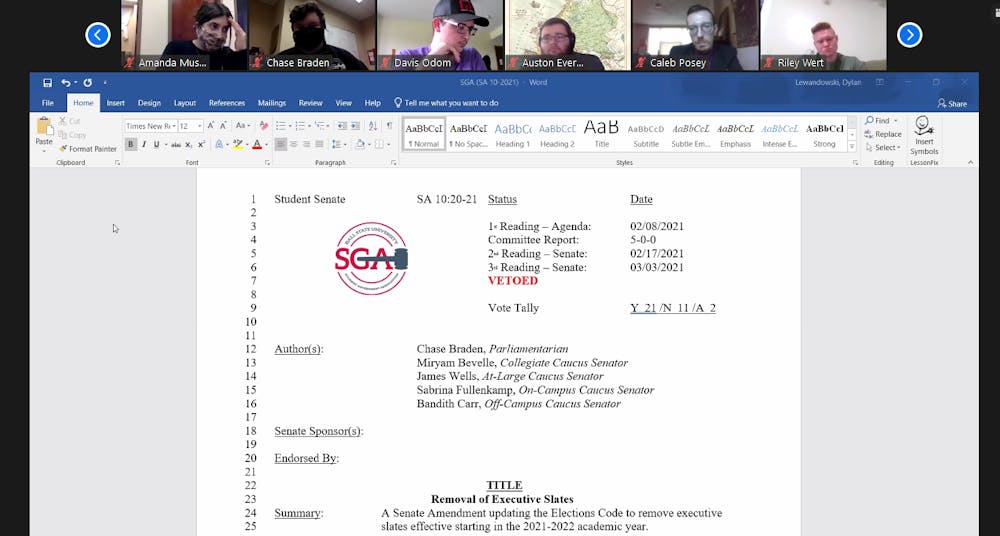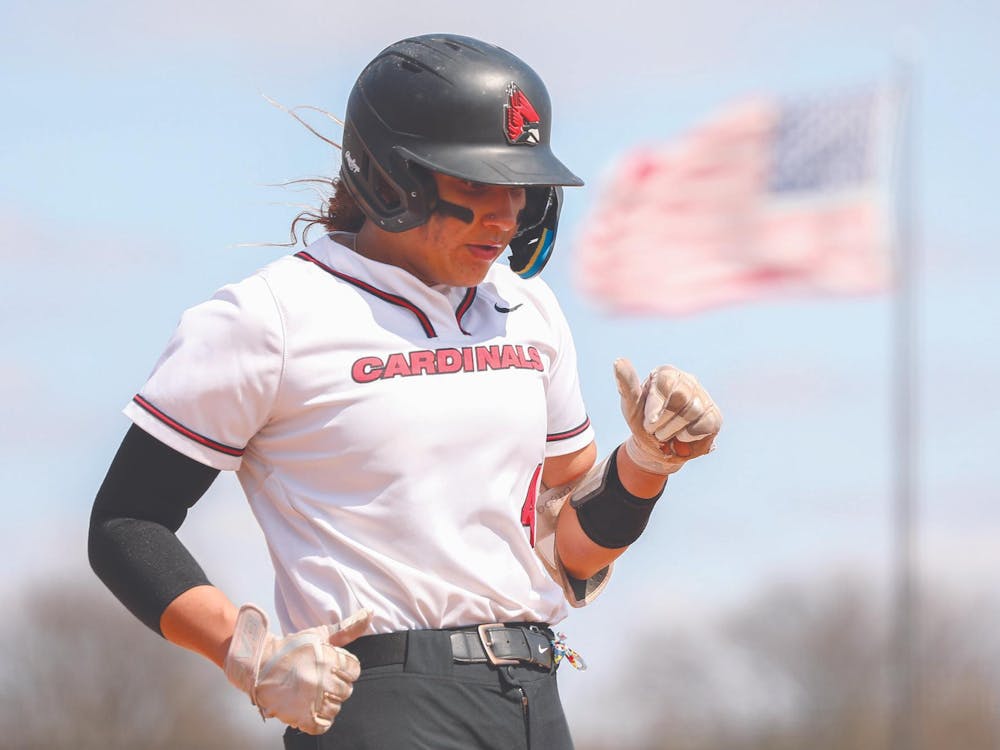Ball State Student Government Association (SGA) President Connor Sanburn vetoed an amendment abolishing slates at the March 10 Zoom meeting.
The main reason senators passed the amendment at the March 3 senate meeting was because it follows the same model as the rest of the schools in the Mid-American Conference (MAC). Sanburn said he did not feel this was a valid argument for the amendment.
“What other schools do and how their senates are structured are for their benefit,” Sanburn said. “We cannot change our governing system just because every school in our conference does so.”
He said there was no reasonable explanation for this amendment to be proposed and the articles quoted in the amendment do not apply to Ball State or provide specific examples.
Sanburn also believes slates provide a smooth transition into power because slate members do not have conflicting ideas beforehand.
“A smooth transition of power can assure our administrators, senators and fellow students that a team will focus their collective energies on set topics and other needs of the university,” he said.
He believes if candidates run on separate tickets, most of the time before the school year and legislative session will be focused on figuring out how the team works together and coming up with an agenda. Sanburn said slates require candidates to work together the entire time rather than just after they are elected.
Sanburn also addressed the idea that eliminating slates would increase voter turnout. According to him, although there has been low voter turnout in recent years, there’s no data to prove eliminating slates will increase voter turnout.
“Voter turnout is not a slate issue. It’s a marketing issue,” Sanburn said. “If we want better turnout, we need to be working on materials for the election much earlier and getting the word out about SGA sooner rather than later.”
Although he is vetoing the amendment, Sanburn said he still believes “this is a great piece of legislation.” He said for this amendment to gain his support, its authors need to find more data-driven research, talk to more students and utilize the survey committee.
Some senators disagreed with Sanburn’s reasoning for the veto.
Senator Miryam Bevelle said she doesn’t think Sanburn’s reasoning for vetoing this amendment is credible.
“This veto comes from a president who has not written or passed legislation in this body, and also one who has vetoed more legislation this year than any other recent president in SGA history,” Bevelle said.
While Sanburn was not a senator before being elected SGA president, he was the chief of staff for the Elevate slate during the 2019-20 school year.
Bevelle also said this amendment doesn’t need to go to student organizations or get more student input because it addresses the senate directly rather than the students.
Bevelle also believes because the other MAC schools are not using slates, SGA has enough reason to abolish them. Ball State is similar to the rest of the schools in the MAC because they all have similar student body sizes and demographics.
Multiple senators agreed with Bevelle, including Senator John Wilcox, who feels there needs to be a change to increase voter turnout in SGA elections.
“Clearly, something needs to be changed and whether this amendment will do that, there are steps that need to be taken,” Wilcox said.
There were some senators who felt Sanburn’s veto was necessary, such as Senator Joseph Gassensmith, who said this amendment takes voices away from the student body.
“When you look at national politics, when amendments are introduced, people naturally have an opinion on them,” Gassensmith said. “That’s why I agree with President Sanburn. Student organizations need to be contacted about this before we make such a drastic change to our university governance system.”
Senator and Strive president-elect Tina Nguyen agreed with Gassensmith, and said the way slates advertise needs to change before eliminating slates.
“[When running,] we’re not allowed to have SGA affiliated with us, and I feel like that affects voter turnout immensely,” Nguyen said. “I believe that changing that is a better first step than this amendment.”
Ultimately, the 22-15 vote to overturn the veto fell short of the two-thirds majority required.
Also at the meeting, senators heard from a prospective new senator, Bradley Spurlock.
Spurlock is a sophomore legal studies major who applied for the off-campus caucus. He was approved by a vote of 36-0, with one abstention.
Senators also heard from Ball State College Democrats and Ball State College Republicans, who wanted to have senators in the organizational caucus. Delaney Fritch represented the College Democrats and Grant Wilson represented the College Republicans.
Both groups were approved by a vote of 32-3, with four abstentions.
SGA also made their nominations for homecoming king and queen. Jake Maple was nominated for king and Miryam Bevelle was nominated for queen.
SGA’s next meeting will be an optional in-person meeting on March 17, with the following week’s meeting on Zoom.
Contact Maya Wilkins with comments at mrwilkins@bsu.edu or on Twitter @mayawilkinss.





